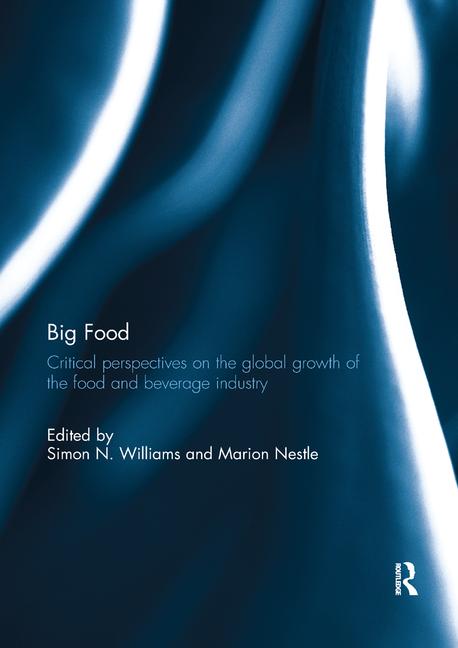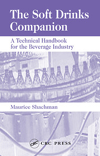A Modern Take On Tradition
By JENNIFER ZEGLER
A broad product mix requires a tight schedule at Polar Beverages’ plants
Out of the many industrial buildings along the highway in Worcester, Mass., Polar Beverages’
plant stands out with its cylindrical silos resembling cans of Polar Ginger
Ale and Orange Dry soft drinks, as well as an inflatable polar bear called
Orson on the roof. The silos are a constant reminder of Polar’s
traditional New England offerings, but the mascot might not always be on
his perch atop the plant, as local fraternities often steal Orson as a
prank. The Crowley brothers, Ralph Jr.,
president and chief executive officer, and Chris, executive vice president
and treasurer, mention that with smiles on their faces.
It’s another sign of the community’s
fondness for the company.
Situated next to its headquarters in the
company’s hometown, Polar’s Worcester plant is just under
500,000 square feet. It produces Polar’s multiple partner brands as
well as its proprietary and private label products on its six lines, which
include cans, PET, bag-in-box and a spring water line. The plant also has
two warehouses for private label stock and direct store delivery product
storage.
An additional six lines are housed at its
600,000-square-foot facility in Scotia, N.Y. Acquired as part of its
purchase of Adirondack Beverages in 1996, the New York plant provides extra
production, distribution and warehouse space. It also helps Polar expand
its capacity to more than 400,000 cases a day between the two facilities.
Chris Crowley says Polar runs more than 2,000 SKUs;
and with so many cases of so many products, the plant must be versatile and
efficient.
“I think there’s a lot more complexity to
our process because we have so many more SKUs,” Chris explains.
“The difference you see with us is much, much quicker changeovers.
We’ve made it as simple, consistent and quick as we can.”
Chris explains that with numerous products and
packaging options, the Worcester plant runs between 40 and 50 products a
day. Often operating seven days a week, the plant runs products on a color
schedule that begins with clear beverages and ends with dark varieties. The
strict schedule dictates when products will run. For example, Polar Orange
Dry usually runs on Wednesdays, though it is open to on-demand production.
For quick requests, the facility keeps product labels
on hand, “We can respond very, very quickly to customers’ needs
because we always have the labels on hand and we have the empty bottles and
can attach the two very quickly,” Chris says.
Traditional formula
Though the company bottles many national brands, its
proprietary brands use century-old formulas to achieve that New England
taste Polar is known for. Chris boils down one of Polar’s keys to
success, saying “It’s all about high-quality ingredients, and a
lot of them.”
The company bottles its spring water as a stand-alone
product as well as a base ingredient. Chris explains there is almost a
constant line of spring water vehicles coming into the plant. During
production peaks, the Worcester plant receives up to 22 truckloads of
spring water a day.
Polar also places much emphasis on the extracts used
to make its proprietary products. “The formula for our flagship
Ginger Ale has been the same for more than a century,” Chris says.
“It’s the exact same formula. In fact, it’s kind of neat.
I have all the old formula books and a lot of cool memorabilia with all
these hand-written formulas.”
For more than 100 years, the company made its own
extracts in house using grain alcohol to ferment the roots and oils. Polar
now outsources its extracts, which are still made according to the
traditional recipe. For example, its Ginger Ale is “a lot more
gingery and a lot less sweet,” compared to national brands, Chris
describes.
Some of the company’s most popular products also
require chilled raw material storage for the juices included in the
products. Polar’s Orange Dry is made with orange juice, Cape Cod Dry
Soda uses Ocean Spray cranberry juice and the Raspberry Lime flavor
includes apple juice for “a better mouthfeel,” he says.
One of its can-mimicking silos formerly housed PET for
the company’s bottles, but Polar, which once manufactured its own
bottles, has since outsourced its bottle-making. The bottles, including
proprietary designs for Polar brand 1-liters
and polycarbonate 20-liter rectangular spring water bottles, are now
manufactured by a packaging company that built a plant equal distance
between Polar’s Worcester and Scotia facilities.
“We had pretty antiquated equipment when we got
out of [manufacturing bottles],” Chris says. “There was a
revolutionary change in PET, blowmolding and processing. In the ‘70s,
we used the same preform. We didn’t reheat; we actually blew it all
warm. Now you reheat and blow it and you can distribute the material
better. It’s all about lightweighting the container. Our containers
couldn’t get less than 58 grams for 2-liter and now we’re
running 48 grams.”
Smooth operator
With such a diverse portfolio and workload in the
plant, the company’s weekly schedule is one of many tools that keep
it running smoothly. Heather Muroney, manager of operations’ planning
and inventory, maintains a strict schedule. Weekly expectation and
performance reports are posted outside the break room so employees, many of
whom have been with Polar for decades, are kept informed. Chris credits the
plant’s staff as one of its keys to success.
Another operational key is
equipment standardization. The company uses individual companies to supply
all its adhesive systems, packers, palletizers, cappers, fillers,
stretchwrappers, trays and lift trucks. Standardization helps with uptime,
Chris says, which helps the company stick to its schedule. Another benefit
is that the plant uses all electric lift trucks for a cleaner work
environment.
Inside the Worcester plant, five lines are often busy
running Cadbury Schweppes’ 7 UP, Sunkist, A&W, RC and Diet Rite
colas; Coca-Cola’s Seagram’s brand ginger ale; products for
numerous private label accounts; and the company’s own Polar brand of
flavors, seltzers and mixers. More complexity is added as each of these
brands has various packaging sizes, including cans and multiple PET bottle
sizes. Chris estimates the plant runs 17 SKUs of PET bottles from 8-ounce
to 3-liter sizes.
The Worcester plant has one line dedicated to 2-liter bottles; another dedicated
to 1-liter; and an additional line that accommodates all sizes of PET
packaging. Polar’s Ginger Ale and mixers are available in proprietary
1-liter bottles that are slightly slimmer than most on the market.
Depending on the product, the PET lines run 220 to 230 bottles per minute,
Chris says. There also is one dedicated can line as well as a line for
bag-in-box.
For Polar Spring Water, the majority of which is sold
in bulk, there is one dedicated filling line. The line fills its
proprietary rectangular 20-liter polycarbonate water bottles with pure
spring water. The unique shape uses a custom palletizer for delivery to
club stores and large businesses. Instead of the standard round 6-gallon
containers, these custom packages are stacked five high, allowing the
company to completely load out a truck. The palletizer also places a layer
of plastic between layers to prevent stacks from being knocked over at club
stores.
Between product runs, the company has clean-in-place
systems that use “a lot of hot water” to sanitize its lines,
Chris says.
“It’s doing it every day – setting
up that discipline,” he says of the quality control system that
allows the plant to juggle so many diverse products. “It’s
setting up that critical control plant analysis throughout the plant and
making it an integral part of what you do every day. You don’t take
any shortcuts.”
Storage capacity
Adjacent to the manufacturing side of the Worcester plant, Polar has
two warehouses for product storage. One is dedicated to storing private
label products and another is a dedicated picking warehouse for proprietary
brands and products the company distributes, but does not produce, such as
Monster Energy drinks. Combined, there is space for 800,000 cases.
The picking warehouse stores six-packs and 12-packs of
cans; cases of 16.9-ounce and 20-ounce PET bottles; and 1- and 2-liters of
its proprietary and partner brands. The aisles are coded for easier picking
because, as Chris explains, there are multiple packaging sizes for each
brand. Therefore, pickers use letter and number codes to select the cases
of Polar products, partner CSDs and New Age brands.
From here, the picked orders are loaded onto
Polar’s own trucks for DSD distribution. Between its Worcester and
Scotia facilities, the company runs close to 300 trucks for distribution.
“The number of trucks utilized changes daily,” Chris says,
“Many of our products are distributed through freight carriers or
back haulers.”
Operating at nearly 400,000 cases per day,
Polar’s two plants maintain a tight schedule to accommodate a
diversified portfolio of beverages.






